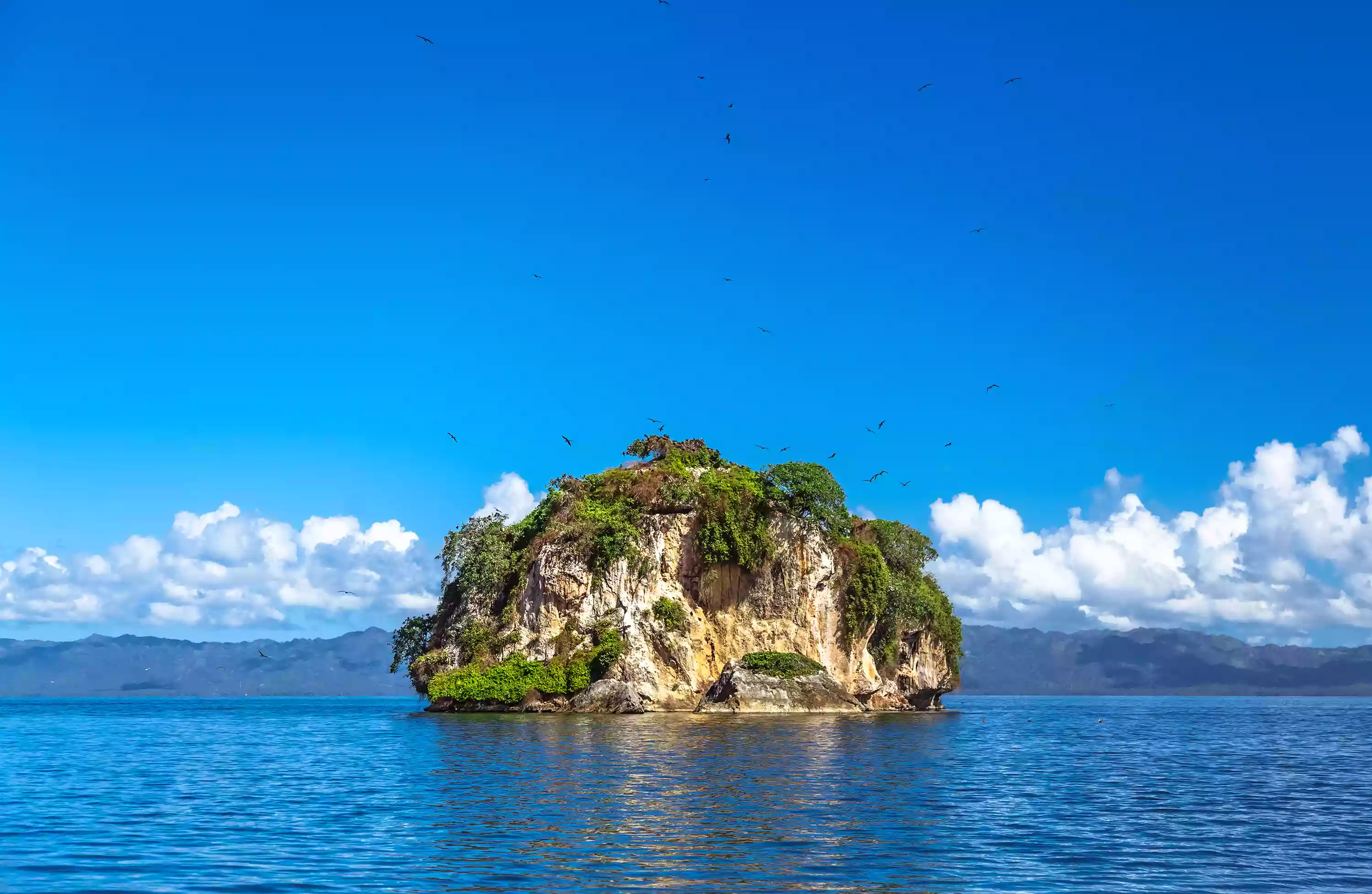Essential Tips for an Unforgettable Trip to the Dominican Republic
Morgan Wiggins
Apr20,2023 • 4 min read

D
iscover the vibrant culture, pristine beaches, and stunning landscapes of the Dominican Republic with ease by learning the ins and outs of this Caribbean paradise. In this article, we'll cover crucial information you need to know before embarking on your adventure, including the best time to visit, currency details, local customs, language tips, and health and safety recommendations.
Best time to visit and seasonal weather
The Dominican Republic boasts a tropical climate, making it an attractive destination year-round. However, the best time to visit depends on your preferences and the activities you plan to enjoy. December to April is the peak tourist season, offering warm, sunny days and less humidity. This is also the prime time for whale-watching in the Samaná Peninsula.
For those seeking fewer crowds and more affordable accommodations, consider visiting during the shoulder seasons of May to June or September to November. Keep in mind that June to November is the official hurricane season, with the highest risk of storms occurring between August and October.
Currency, exchange rates, and payment methods
The official currency in the Dominican Republic is the Dominican Peso (DOP). It's essential to be aware of the current exchange rates, which can be found online or through a currency conversion app. It's recommended to exchange some money before your arrival or at reputable exchange booths and banks in the country.
Major credit cards are widely accepted in larger cities, tourist areas, and upscale establishments. However, it's a good idea to carry cash for smaller businesses, street vendors, and rural areas. ATMs are available in most urban areas but may have withdrawal limits and fees, so plan your cash needs accordingly.
Local customs and cultural etiquette
Understanding and respecting local customs is essential for a smooth and enjoyable trip. Dominicans are known for their warmth, friendliness, and hospitality. Keep these tips in mind:
- Greetings: A firm handshake with eye contact is common among strangers, while close friends and family may exchange a kiss on the cheek.
- Dress code: In general, dress modestly in public places, especially when visiting religious sites. Beachwear should be reserved for beach areas and resorts.
- Punctuality: Dominicans are known for their relaxed attitude towards time, so be patient and flexible with delays and rescheduled plans.
- Socializing: Dominicans value community and family, so don't be surprised if you're invited to join in social gatherings and celebrations.
Language basics and common phrases
Spanish is the official language of the Dominican Republic. While many locals speak English in tourist areas, learning a few basic phrases in Spanish can make your trip more enjoyable and help you navigate the country more easily. Some useful phrases include:
- Hola (Hello)
- Adiós (Goodbye)
- Por favor (Please)
- Gracias (Thank you)
- Cuánto cuesta? (How much does it cost?)
- Dónde está…? (Where is…?)
- Habla inglés? (Do you speak English?)
- Perdón or disculpe (Excuse me)
Health and safety tips, including vaccinations
Before traveling to the Dominican Republic, consult your healthcare provider for any necessary vaccinations and health recommendations. The Centers for Disease Control and Prevention (CDC) suggests being up to date on routine vaccinations, including Hepatitis A and Typhoid, which can be contracted through contaminated food or water.
In addition to vaccinations, be mindful of these safety tips
- Drink bottled or purified water and avoid ice made from tap water.
- Apply insect repellent and wear protective clothing to prevent mosquito-borne diseases like Zika and Dengue fever.
- Practice sun safety by wearing sunscreen, sunglasses, and a hat, especially between 10 am and 4 pm when the sun is the strongest.
- Be cautious of your surroundings and use common sense when it comes to personal safety. Avoid displaying valuables and carry only the cash you need for the day.
Transportation options and car rentals
The Dominican Republic offers various transportation options, including taxis, public buses (guaguas), and car rentals. Taxis are widely available in cities and tourist areas, but it's advisable to agree on the fare before your journey begins. For a more affordable option, guaguas are a popular choice among locals, although they can be crowded and may not follow a strict schedule.
Renting a car provides flexibility and convenience, but be prepared for different driving conditions, such as aggressive drivers and poorly maintained roads. International car rental companies are available at airports and major cities, and it's essential to have a valid driver's license, passport, and credit card for the deposit.
Traditional Dominican cuisine and popular dishes
Dominican cuisine is a delightful fusion of Spanish, African, and Taino influences. Some must-try dishes include:
- La Bandera Dominicana: A traditional meal featuring rice, beans, meat, and salad.
- Sancocho: A hearty stew made with various meats and vegetables.
- Mofongo: A dish made of mashed plantains, garlic, and chicharrón (pork cracklings), often served with meat or seafood.
- Tostones: Fried green plantains, typically served as a side dish or appetizer.
- Mangú: Boiled and mashed green plantains, often served with fried cheese, salami, and eggs for breakfast.
Don't forget to try refreshing beverages like Morir Soñando (a mix of orange juice and milk) or the popular Presidente beer.
Cultural events, festivals, and public holidays
The Dominican Republic is known for its vibrant cultural celebrations and events. Some notable festivities include:
- Carnival: Held throughout February, this lively event features colorful parades, costumes, and street parties.
- Semana Santa (Holy Week): A significant religious celebration observed with processions and masses in late March or early April.
- Merengue Festival: A week-long music and dance event held in Santo Domingo in July, showcasing the country's national dance and music.
- Restoration Day: Celebrated on August 16th, this public holiday marks the beginning of the Dominican Republic's war of independence from Spain.
Nightlife, entertainment, and local music
The Dominican Republic offers a vibrant nightlife scene, with options ranging from lively dance clubs and bars to more laid-back beachside venues. Santo Domingo, Punta Cana, and Puerto Plata are popular hubs for nightlife entertainment. Merengue, bachata, and salsa are the main music genres, so don't hesitate to join in the dancing and enjoy the infectious rhythms.
Emergency contacts and local support resources
It's essential to have emergency contact information handy in case of unforeseen circumstances. Some important numbers to keep on hand include:
- Emergency: 911 (Police, Ambulance, and Fire services)
- Tourist Police (CESTUR): 809-200-3500
- Nearest embassy or consulate for your country
Additionally, consider purchasing travel insurance and registering with your country's embassy or consulate upon arrival for added security and support during your trip.

